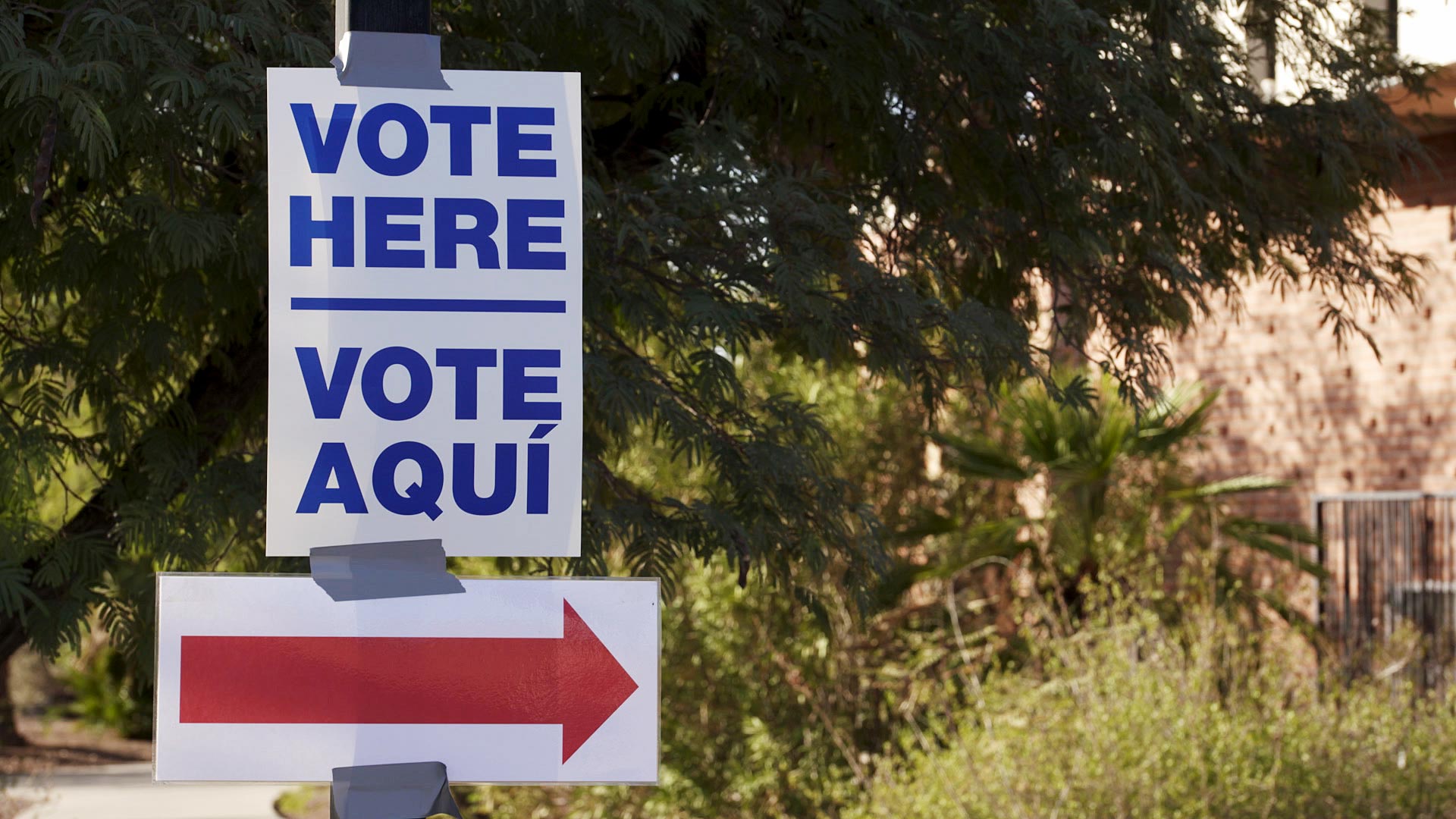 A sign directs voters to a polling site set up at Temple Emanu-El in Tucson on Nov. 3, 2020.
A sign directs voters to a polling site set up at Temple Emanu-El in Tucson on Nov. 3, 2020.
Living United for Change in Arizona, better known as LUCHA, filed a lawsuit Wednesday morning to block HCR 2060. That ballot proposal, also known as the “Secure the Border Act,” would allow state law enforcement to assist federal agencies in arresting undocumented immigrants who crossed the border somewhere other than an official port of entry.
The nonprofit political advocacy organization says the proposition deals with more than one subject, which is a violation of the state constitution. According to Arizona’s Constitution, “every act shall embrace but one subject and matters properly connected therewith.”
“Because HCR 2060 combines numerous, unrelated subjects from immigration to employment law to criminal drug enforcement, it embraces more than one subject…and is therefore unconstitutional,” the lawsuit reads. “When an act combines unrelated subjects in violation of the Single Subject Rule, courts will not attempt to ascertain which of the subjects is primary but will strike the measure in its entirety.”
During Tuesday’s floor debate, House Speaker Ben Toma said that the proposal would enhance sentencing for fentanyl dealing, strengthen verifications of employment eligibility, and make it a state crime to enter Arizona from a foreign nation somewhere other than a port of entry.
LUCHA contends that the proposal does more than tackle just the issue of immigration.
“HCR 2060 does not amend a specific, single act enacted by the Arizona voters or the Arizona legislature, but rather, sections of the Arizona Revised Statutes scattered throughout several titles enacted by numerous, separate legislative acts.”
Chris Gilfillan, LUCHA's political director, told AZPM News that the organization’s suit is not meant to prevent immigration reform, but rather have it be handled at the federal level.
“We just don't think immigration law should be enforced at this at a state level like Florida did in the past,” Gilfillan said. “We just think it's a bad piece of public policy to try to enforce immigration law at a state level because the state level is just not equipped to be able to enforce or effect that kind of law.”
The proposal is expected to appear on November’s ballot after clearing the House of Representatives on Tuesday. The Republican-backed initiative bypasses Democratic Governor Katie Hobbs’ approval. She said, if she had the opportunity, she would not Secure the Border Act.
“HCR 2060 will hurt Arizona businesses, send jobs out of state, make it more difficult for law enforcement to do their jobs, and bust the state’s budget,” Hobbs said on social media. “While I continue to prioritize public safety and do everything I can to keep our communities safe, Arizona cannot continue cleaning up the federal government’s mess.”
Gilfillan expects that if HCR 2060 remains on the ballot it will drive turnout to vote it down.
“Our calculation is that HCR 2060 will instead motivate Latinos and women to come out and vote by the droves. We will see abuelitas vote with their grandchildren.”

By submitting your comments, you hereby give AZPM the right to post your comments and potentially use them in any other form of media operated by this institution.